Harun was born into, paralyzed, and killed by Israel’s colonial system. The struggle to dismantle it begins in the cave where he spent his final years.
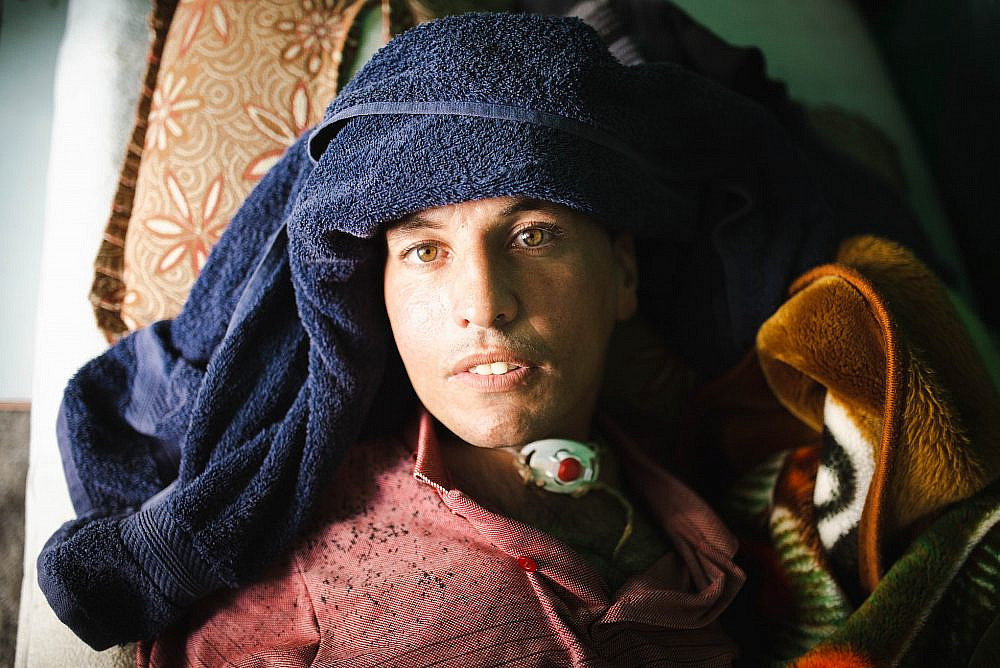
Harun Abu Aram in his village of Al-Rakeez in Masafer Yatta, West Bank. (Emily Glick)
Yuval Abraham, +972 Magazine, February 16, 2023
Harun Abu Aram is dead. For two years, he lay completely paralyzed in a dirty cave, without running water, plagued by pain. This was his life from the moment an Israeli soldier arrived in the South Hebron Hills, in the occupied West Bank, to confiscate an electric generator and shot Harun in the neck in January 2021. The army refused to allow his family to build a home for him, despite the fact that the family was on their privately-owned land, and so they were forced to live in the cave. This is what Israeli expulsions and ethnic cleansing look like in the region of Masafer Yatta.
On Tuesday morning, at 26 years old, Harun took his final breath. His mother, Farisa, who goes by the nickname Shamiya, never left his side. She bathed his immobilized body with a bucket of water. She stayed awake with him as he writhed in pain during the nights. His sisters loved him deeply, holding the phone to his face whenever relatives would call to ask about him.
I met his mother for the first time at the end of 2020, when Israeli bulldozers arrived to demolish the family home. She built it for Harun, who was meant to get married and raise a family in one of its rooms. An inspector from the Civil Administration, the military body that governs the occupied territories, berated Shamiya not to retrieve any of the family’s belongings.
The bulldozer plowed through the home with everything inside, including kitchen cabinets. Doha, Harun’s youngest sister, cried as she watched her home torn to shreds. I remember how the dust stuck to her hair, and how her mother, a proud woman, said: “They demolished, we’ll continue to build.”
Weeks later, Harun was shot after he attempted to prevent Israeli soldiers who had arrived at his village of Al-Rakeez from confiscating a communal generator.
‘Geographic terrorism’
The last years have seen armed soldiers aggressively trying to block Palestinian construction by confiscating their tools, often at the behest of Israeli settlers living nearby. Sometimes, settlers themselves try to stop Palestinian construction, as they reportedly did last Saturday in the town of Qarawat Bani Hassan, where they shot and killed 27-year-old Methqal Abd al-Halim Rayan. Other times, soldiers fly drones to take aerial photos and send them to the Civil Administration, whose inspectors then arrive. This is one part of Israel’s vast colonial system, one that systematically prevents Palestinians from building their homes in areas such as the South Hebron Hills.
The dreadful hum of these drones buzzed overhead during the countless times I visited Al-Rakeez, one of the smallest villages in Masafer Yatta. Drones that peered into the homes of the poor farmers, forcing them to build at night, in secret.
Harun’s killing is a result of this colonial system, and more specifically, of the sick worldview that deems Palestinian construction as a form of “terrorism,” thereby creating a pretext for the army to “counter” it with military might.
Israeli politicians like to call this the “battle for Area C.” During hearings in the Knesset Foreign Affairs and Defense Committee at the time, Likud MK Avi Dichter referred to Palestinian building as “geographic terrorism”; right-wing MK Gideon Sa’ar argued that it will “determine the future borders of the country”; and far-right MK Bezalel Smotrich, who today serves as finance minister, said that the Israeli army is responsible for the “battle.”
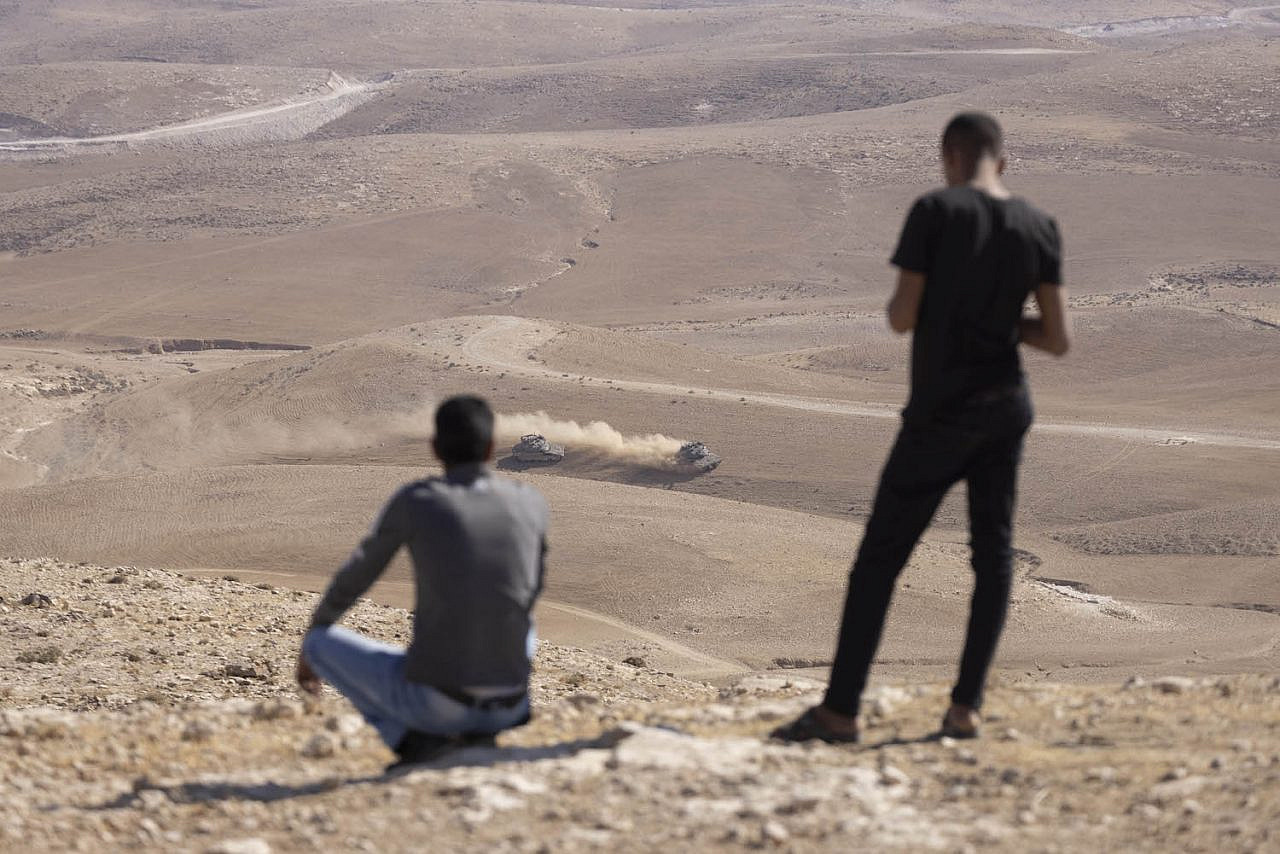
In one of his public appearances, Meir Deutsch, the head of the right-wing organization Regavim, which has been one of the major forces behind this “battle,” spoke of a “paradox” he recently witnessed. Soldiers, he said, were practicing live fire on cardboard targets in the South Hebron Hills, while 300 meters from them, Palestinians were busy building. “The enemy is taking over the territory, and our soldiers continue to shoot at cardboard targets,” he said.
These people, who have the power to send one of the most powerful armies in the world to persecute the most vulnerable people between the river and the sea — families who almost always build on their private land — have created a fantasy world for themselves, in which they are fighting against a pernicious plan by the Palestinian Authority to take over Jewish land.
Both Israel and the Palestinian Authority refused to pay for Harun’s treatment. I saw his mother begging the soldiers who stopped her at the checkpoint, to let her “just build a house, one room, so that I have a clean place to take care of him.” They looked at her and did not understand Arabic. Several men were required to lift Harun out of the cave when necessary. People collected money to help the family.
The army continued to arrive at the family home, even after the shooting. Soldiers confiscated the solidarity tent that had been erected there after the shooting, handed out demolition orders for nearby wells, and stopped Harun’s mother at the checkpoint to confiscate the family’s unregistered vehicle, which she used for taking her son to the hospital.
When he was 11 years old, Harun appeared in the 2012 film “Good Garbage.” In it we see Harun rummaging through a landfill, his face dirty, sorting waste from nearby settlements. He picks up a yellow mattress. His mother tells him that he should bring clothes he finds so she can wash them. When he returns home, his mother worries over his face, which was burned by the heat of the fires in the landfill.
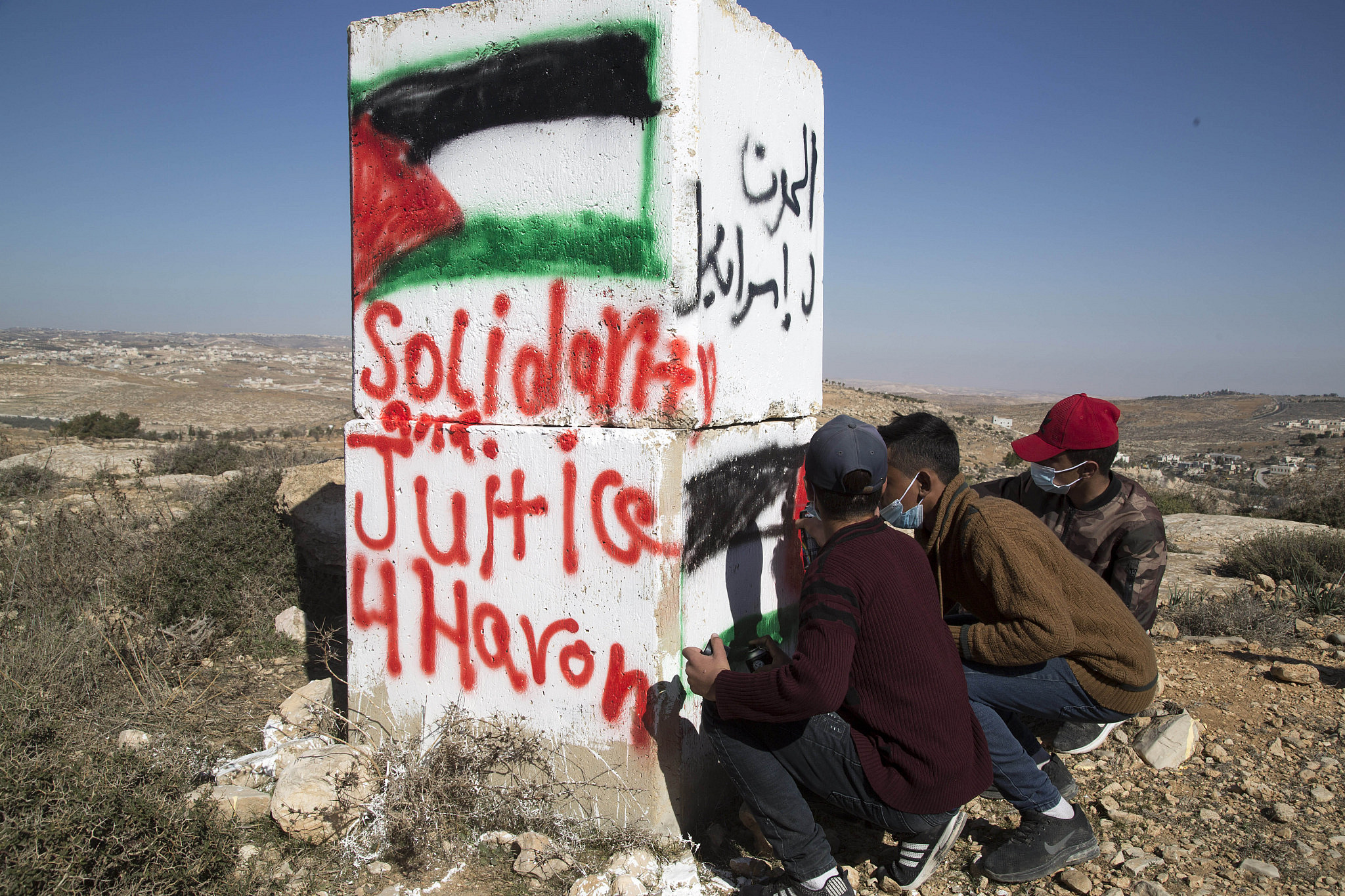
Harun, without looking directly at his mother, is seen saying: “The sun is killing us, and they lie to us when they weigh the iron.” Something in his mother’s eyes immediately changes, and suddenly she looks at him with fear, almost anger. “You have to bear this,” she tells him. “This was imposed on us. Those who are strong live, and those who are not strong will not live. Only those who are strong can live.”
One hill, two laws
I did not know Harun. Today, his being, more than two decades worth of life, is reduced to that of a stranger, a victim. The many layers of who he was are invisible to me. I’m not the one to write about or eulogize Harun. This reduction, I know, was difficult for him, not only a reduction of his body and what happened to it, but of his image — of the person he was.
His mother whispered that he wanted to die. When she first visited him in the hospital two years ago, his body did not move, but his eyes filled with tears. His dignity, his dependence on her, particularly as a child who was once so independent, who was sent to support his family at such a young age, must have been unbearable.
It’s hard to imagine. The cave where he lived became a visitors center. Dozens of journalists and activists have passed through in the last two years, peeking in for a moment, photographing him lying nearly lifeless on his mattress. I remember how, one day, Harun turned his head away and shouted at them to get out.
The IDF Spokesperson changed excuses as time went by. At first they claimed that the shooting was in response to stone throwing and rioting by 150 Palestinians. That lie was easy to disprove, since there was both video footage and many eyewitnesses. The footage shows a barefoot Harun standing next to his family members, holding on to their generator, as the soldiers try to confiscate it. Next, the army claimed the shooting was unintended, and that it only happened after soldiers felt their lives were in danger. Finally, the spokesperson decided that the bullet that ripped through the top of Harun’s spine was accidentally discharged when Palestinians tried to grab the commander’s gun.
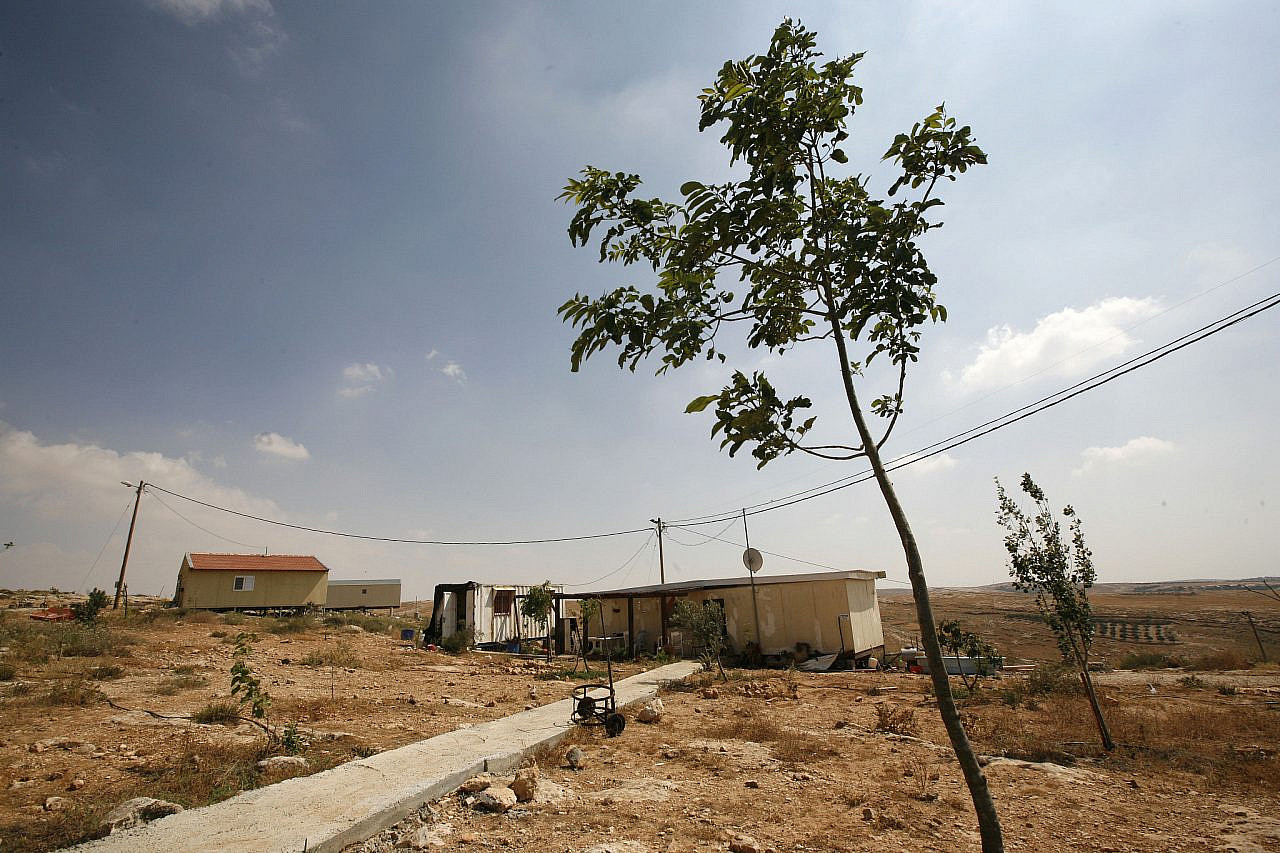
Immediately following the shooting, the army announced it had opened an investigation. In the two years since, I have regularly contacted the army to check on the investigation. The last time I contacted them was in October 2022, when, as per usual, they said that the investigation had not yet been concluded. Now this has changed: the army announced that the investigation is over, and that the shooter will not be prosecuted.
A minute’s walk from the cave where Harun died stands the settlement outpost of Avigail, which was built in 2001. Its homes are still standing, despite the demolition orders handed out to each and every one of them. On Tuesday, the government announced that it would formally legalize the outpost, which has long enjoyed paved roads, electricity, and running water. One hill, two laws.
As I write these lines, the bulldozers are making their way back to Masafer Yatta for another wave of demolitions. Last May, the Israeli Supreme Court authorized the army to evict over 1,000 Palestinian residents from villages that have appeared on maps since the end of the 19th century, ostensibly so that soldiers can train there. Protocols from decades-old Israeli cabinet meetings make clear that the plan to expel the Palestinians of Masafer Yatta was dreamed up to enable Jewish-Israeli settlement in the area.
Harun was born into and killed by a system of colonial apartheid. The struggle to dismantle it begins at the entrance to the cave in which he spent his final years.
This article first appeared in Hebrew on Local Call. Read it here.
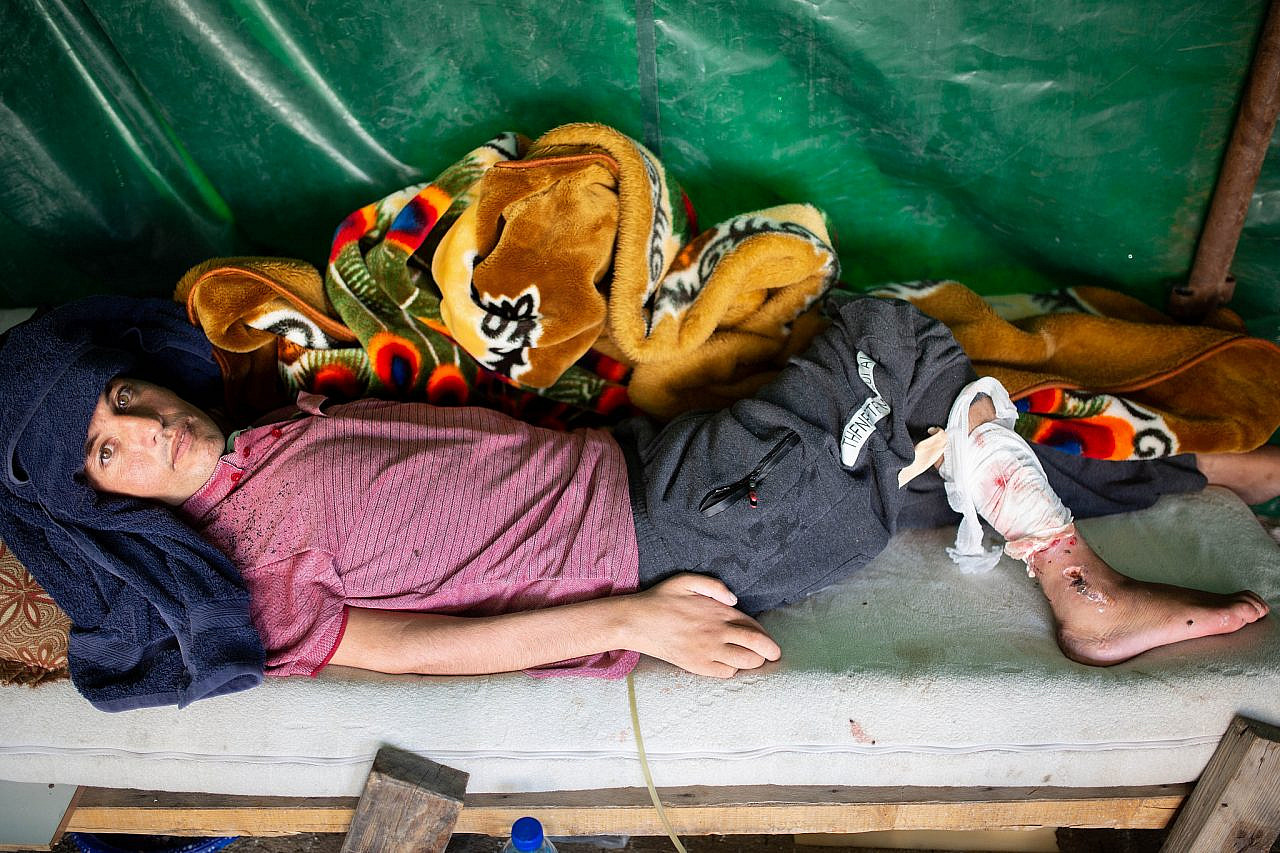
Leave a Reply
You must be logged in to post a comment.